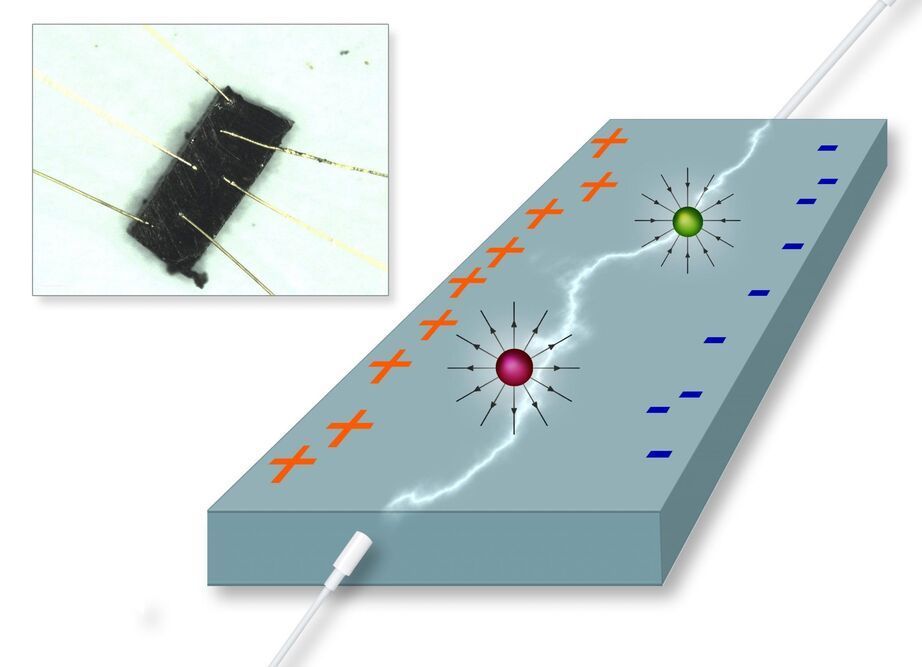Surprise in solid-state physics: The Hall effect, which normally requires magnetic fields, can also be generated in a completely different way – with extreme strength.
Electric current is deflected by a magnetic field – in conducting materials this leads to the so-called Hall effect. This effect is often used to measure magnetic fields. A surprising discovery has now been made at TU Wien, in collaboration with scientists from the Paul Scherrer Institute (Switzerland), McMater University (Canada), and Rice University (USA): an exotic metal made of cerium, bismuth, and palladium was examined and a giant Hall effect was found to be produced by the material, in the total absence of any magnetic field. The reason for this unexpected result lies in the unusual properties of the electrons: They behave as if magnetic monopoles were present in the material. These discoveries have now been published in the scientific magazine PNAS.
A voltage perpendicular to the current.
